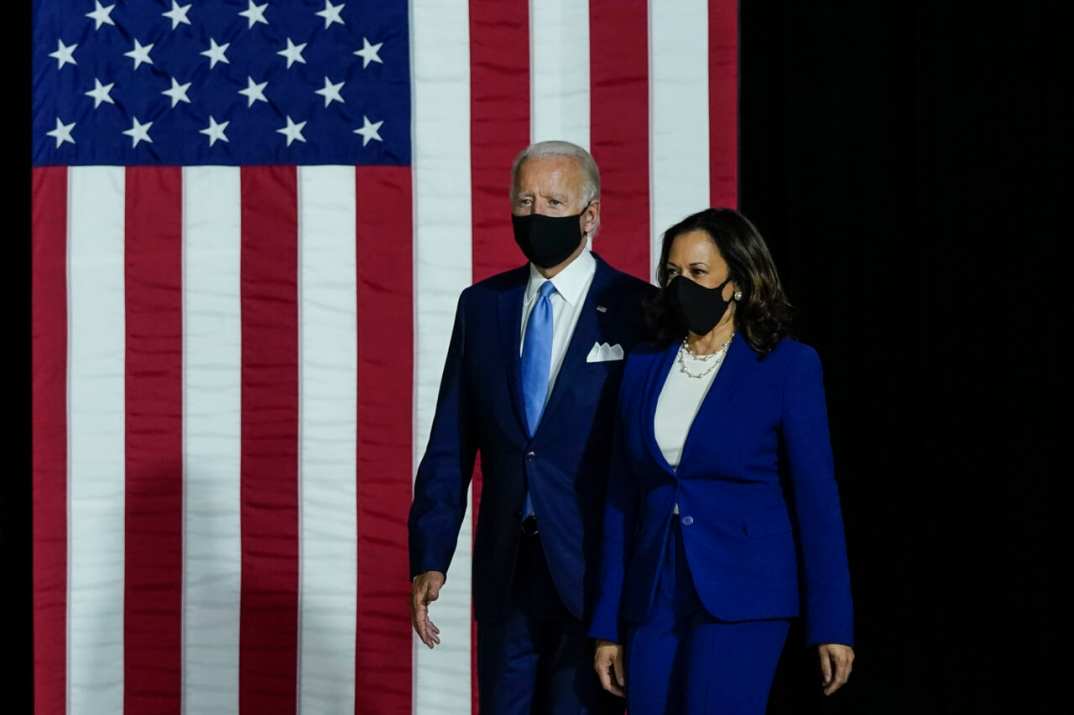The Biden camp is busy — and we need to be busy making a voting plan
OPINION: If Black voters do not make their voices heard at the ballot box on Nov. 3, the threats to our health and wellbeing are in grave danger

Even though 2020 feels like a never ending inferno, we must stay focused on the upcoming election. Even though Joe Biden and Kamala Harris are at the top of the ticket, there are governors, senators, members of the House, district attorneys, attorney generals, sheriffs, and judges on various ballots in states across the country.
Many voters feel the 2020 election is one that the Democrats must win in order to have some sort of semblance of democracy in this nation. The current occupant of the White House and his administration have made it abundantly clear that they are casting their lot with white nationalists, vigilantes, and those who believe in “law and order” over Black, Latinx, and immigrant groups currently residing in the United States.
Read More: Bloomberg raises $16 million to help ex-felons to vote in Florida
In an effort to mobilize voters and articulate just what is at stake in this election, Biden and Harris are targeting swing states, that is, states with a history of voting for both Democratic and Republican candidates for the presidency and state-wide office.
Former Vice President Biden has stated that this election is about “Scranton versus Park Avenue.” I am not sure how much this slogan resonates with working class Black voters in urban centers, but it is clear Biden is trying to reach out to disaffected working class white voters while simultaneously reaching out to Black and Latinx voters.
In order to speak to both working class whites, Blacks, and Latino groups, the Biden-Harris team will continue to travel the country to make the case that they will build the economy back better for working families and small businesses, and create good-paying, middle class jobs—while Trump fights for the wealthy and corporations.
On this tour, they will meet with small business owners and entrepreneurs in three battleground states and release new ads highlighting the contrast between Trump and Biden on helping small businesses.
Both ads feature Black small business owners. Celeste Beatty is a small business owner of North Carolina and explains the impact COVID-19 has had on her business’ revenue because of the current administration’s unclear policies on how to handle the virus. Anthony Jefferson is a small business owner in Pittsburgh, PA whose business has been drastically impacted by the virus and does not feel like President Trump sees him.
The goal of these ads is to highlight Black small business owners. The addition of a coalition of leaders dedicated to mobilizing small business owners and entrepreneurs to vote for Biden and Harris will help them articulate a vision for Black voters that moves beyond the current realities of a Trump presidency and into a policy space provided by a Biden-Harris administration.
Black Americans are disproportionately affected by COVID-19 and the economic effects of the virus cannot be understated. The closings of small businesses and the ability for Black Americans to find meaningful work during the pandemic has had severe effects on personal finances, as well as the economic viability of communities.
Biden recently held a Black Economic Summit in Charlotte, NC where he met with small business owners, workers, and others who are struggling to make ends meet—especially those in the African American community who face 13% unemployment. Small businesses in North Carolina have been devastated with 74% negatively impacted by the coronavirus, 12% permanently closed and 11% have reduced the number of employees. Black-owned businesses have been hit even harder.
Similarly, Senator Harris traveled to Michigan, where she visited both Detroit and Flint to meet with Black small business owners who have been disproportionately impacted by Trump’s failed virus response. While in Detroit, Sen. Harris held an event with Lt. Gov. Garlin Gilchrist and Black male leaders at a Black-owned barber shop to discuss the fight for racial justice and the power of Black men voting in this election.
Read More: Foot Locker stores will turn into voter registration sites
I know many Black voters have real policy questions for the candidates. I know many Black voters have real concerns about the future of this nation beyond elections. However, one thing is certain – if Black voters do not make their voices heard at the ballot box on Nov. 3, the threats to our health and wellbeing are in grave danger.
For those of us who are able, it is imperative we make a voting plan. First, find out if you are registered. Second, learn the laws and rules of your particular state. Know whether you are allowed to vote early, by mail, at a designated ballot drop box, or in person on election day. Third, familiarize yourself with your ballot. Fourth, make a comprehensive plan for yourself, your family members, and discuss these plans with friends and community members.
Websites like vote.org, vote411.org, voteriders.org, lawyerscommittee.org, and 866ourvote.org are great places to begin.
Christina Greer, Ph.D., is an associate professor at Fordham University, political editor at The Grio, the author of “Black Ethnics: Race, Immigration, and the Pursuit of the American Dream” and the co-host of the podcast FAQ-NYC. You can find her at @Dr_CMGreer on Twitter.
Have you subscribed to theGrio’s new podcast “Dear Culture”? Download our newest episodes now!
